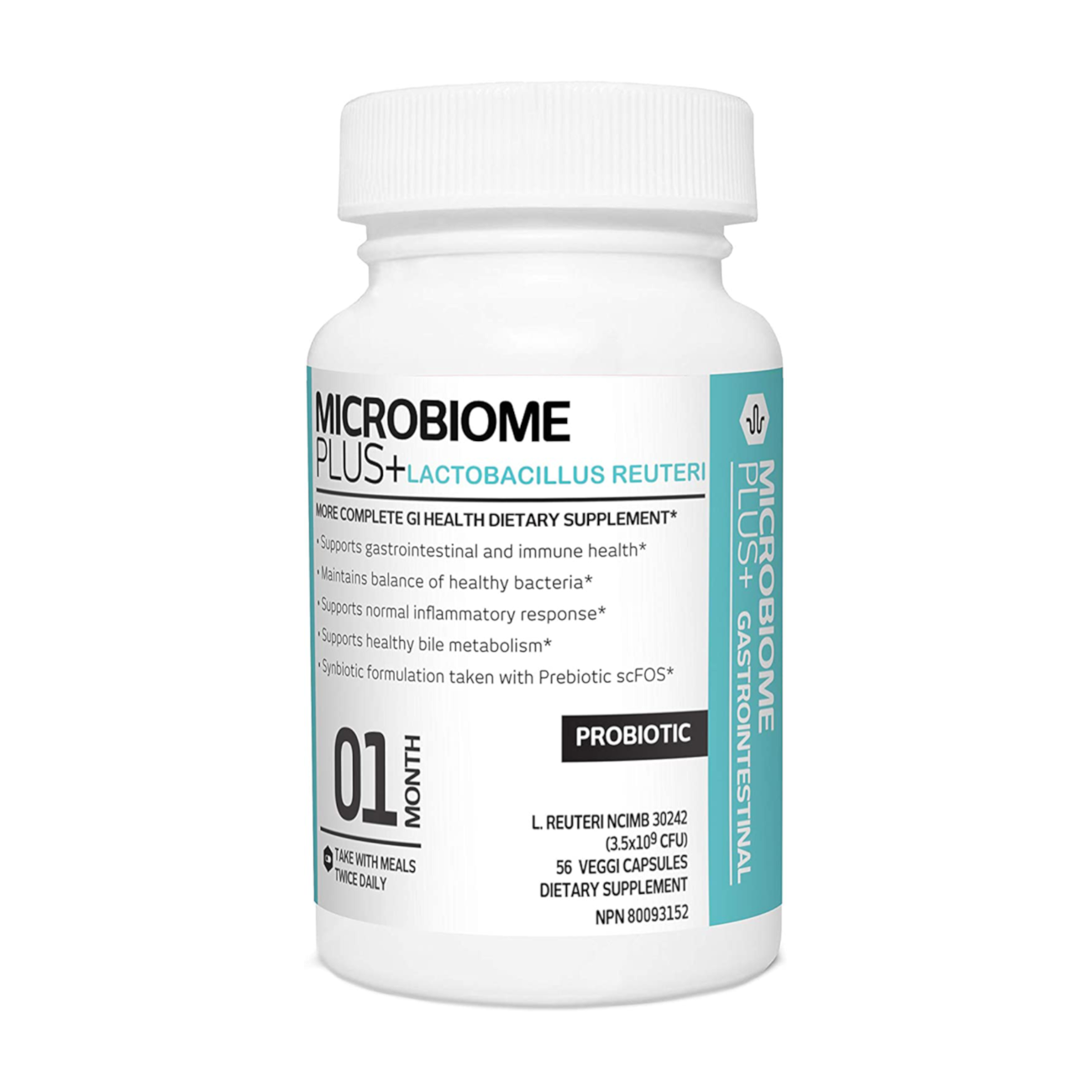Overview
Acne vulgaris is the most common skin disorder. A disturbed human skin microbiome results in acne. The overgrowth of an unhealthy bacterium, called P. acnes predisposes to acne. Microbiome probiotics are therefore vastly beneficial in acne. Introducing healthy microbes can help in getting rid of acne.
Association of Acne with Gut and Psychological Problems – THE GUT-BRAIN-SKIN AXIS
A considerable overlap exists between gut issues, psychological problems (like depression and anxiety), and skin conditions such as acne. Individuals with acne sustain greater psychological fallouts (skin and brain). Likewise, gastrointestinal problems are more prevalent in those with acne (gut and skin). This gut, brain, skin triangle is referred to as the gut-brain-skin axis.
Gut Mechanisms Underlying Acne Flare-ups Explain the Implications of Probiotics in Acne
The Link between SIBO and Acne
A type of acne called rosacea occurs with greater frequency in adults with small intestinal bacterial overgrowth (SIBO). Studies report a significant link between SIBO and the flare-ups of acne rosacea. [1] Since overgrowth of harmful bacteria characterizes SIBO, introducing probiotics balances the gut flora, improves the SIBO symptoms, and eventually can offset the accompanied skin rash and pimples.
Moreover, the enhanced intestinal leakage that triggers SIBO also appears to be present in acne. Because probiotics accelerate the repair of the gut lining and modify the fermentation patterns in the intestine, they ease not only SIBO but acne as well. [2]
A study indicating compromised gut barriers in people with acne revealed augmented reactivity to toxins (isolated from E-coli) in the blood in those suffering from acne compared to those without acne. These toxins were also present in substantial amounts in the blood of adults with acne. [3] These toxins penetrate the gut walls and provoke a severe inflammatory reaction in the body that also triggers the breakouts of acne. Having that said, probiotics strengthen the gut barriers preventing the body and skin from getting inflamed.
The Link between Constipation and Acne
Scientific data reveals that individuals with acne are more prone to be constipated. In addition, the levels of good bacteria plummet in constipation. A Russian study demonstrated a significant decrease in the levels of healthy bacteria in those suffering from long-standing constipation. Likewise, the gut lining in these people also exhibited a high permeability just like in people with acne. [4]
Owing to their gut-barrier and healthy microbiome-restoring properties, probiotics alleviate constipation as well as aid in clearing the skin.

The Role of Substance P in Acne: Added Significance of Probiotics in Acne
Substance P is a key inflammatory mediator that also plays a role in the sebum production of acne. Lactobacillus-containing probiotics can slow down the substance P-induced skin inflammation while simultaneously hastening recovery of the skin barrier function. [5]
Summary
Although more research is warranted to identify the protective effects of probiotics in acne, ingesting or applying probiotics seems to benefit acne largely if not completely eradicate it. Acne can be managed by a balanced diet, avoidance of precipitating factors, and introducing healthy bacteria in the form of probiotics.
Written by:
Dr. Rasheed Huma
References
- Parodi A, Paolino S, Greco A et al. Small intestinal bacterial overgrowth in rosacea: clinical effectiveness of its eradication. Clin Gastroenterol Hepatol. 2008;6(7):759-64. doi: 10.1016/j.cgh.2008.02.054.
- Barrett JS, Canale KE, Gearry RB, Irving PM, Gibson PR. Probiotic effects on intestinal fermentation patterns in patients with irritable bowel syndrome. World Journal of Gastroenterology: WJG. 2008;14(32):5020-5024. doi:10.3748/wjg.14.5020.
- Juhlin L, Michaëlsson G. Fibrin microclot formation in patients with acne. Acta Derm Venereol. 1983;63(6):538-40.
- Khalif IL, Quigley EM, Konovitch EA, Maximova ID. Alterations in the colonic flora and intestinal permeability and evidence of immune activation in chronic constipation. Dig Liver Dis. 2005;37(11):838-49.
- Gueniche A, Benyacoub J, Philippe D et al. Lactobacillus paracasei CNCM I-2116 (ST11) inhibits substance P-induced skin inflammation and accelerates skin barrier function recovery in vitro. Eur J Dermatol. 2010;20(6):731-7. doi: 10.1684/ejd.2010.1108.










